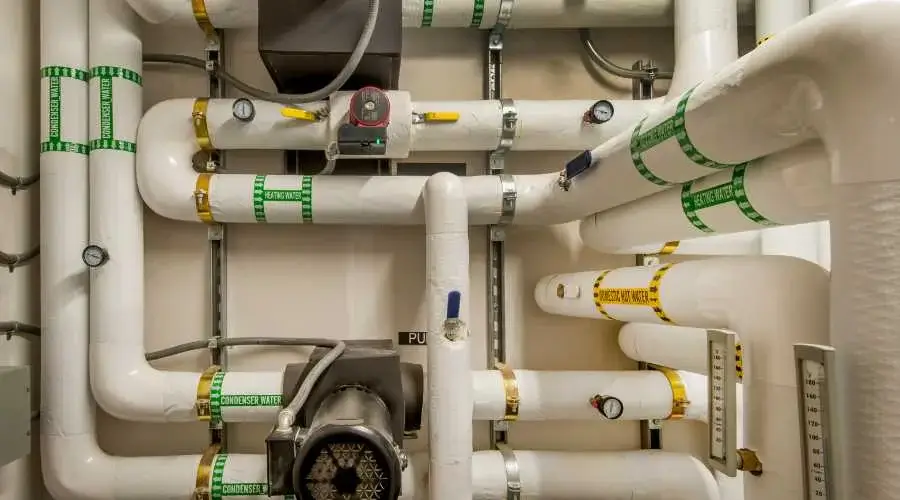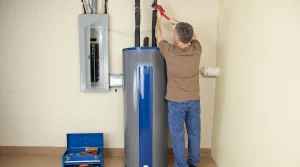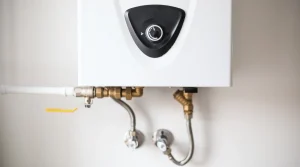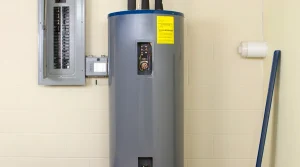Clean water supply requires plumbing systems. and managing wastewater in homes, businesses, and communities. An intricate system of pumps, valves, and pipes works tirelessly behind the scenes to ensure safety, hygiene, and convenience.
Key Takeaways
- Types of Plumbing Systems: Storm drainage, sanitary drainage, and potable water systems each serve distinct and vital roles.
- Transport Mechanisms: Plumbing relies on pumps, gravity, and valves for efficient water movement and waste management.
- Maintenance Matters: Regular inspections and prompt repairs are crucial for system longevity and efficiency.
- Professional Support: Expert plumbers can address issues promptly, ensuring safe and functional systems.
Types of Plumbing Systems in Clifton, NJ
Clifton, NJ, boasts a robust infrastructure to efficiently manage water supply and wastewater. Here are the three primary types of plumbing systems in use:
1. Storm Drainage
Storm drainage systems prevent flooding by redirecting rainwater and runoff away from buildings and streets. Clifton’s network includes approximately 1,443 miles of storm drain pipes. Here’s how it works:
- Grates and Screens: Storm drains feature grates to capture debris like leaves and twigs. Large screens at pumping stations further filter out residue.
- Redirection: Collected water is routed through underground canals and levees to rivers and basins, creating habitats for local wildlife.
- Flood Prevention: By efficiently managing rainwater, the system minimizes property damage and ensures safe roadways.
2. Sanitary Drainage
Sanitary drainage systems handle wastewater from homes and businesses. They are critical for maintaining public health by transporting sewage to treatment plants. Key features include:
- Separation Chambers: These divide sludge from wastewater for proper disposal.
- P-Traps and Vent Pipes: P-traps prevent sewer gases from entering buildings, while vent pipes regulate pressure to keep water flowing correctly.
- Health Safeguards: Regular maintenance ensures that leaks or clogs do not expose people to harmful bacteria.
3. Potable Water
Potable water systems deliver clean drinking water to homes and businesses. This system’s integrity is vital for health and safety. Important details include:
- Pipe Materials: Common materials include PVC, CPVC, PEX, copper, and galvanized steel, selected based on water temperature and usage.
- Municipal Supply: Over 80% of Clifton’s potable water comes from the Clifton and American Rivers, treated to meet high-quality standards.
- Cross-Contamination Prevention: Proper design and insulation ensure that potable water remains separate from storm and sanitary drainage systems.
Plumbing Transport Systems
Water movement within plumbing systems depends on efficient transport mechanisms, which include:
1. Pumps
Pumps play a crucial role in moving water and waste. Types include:
- Centrifugal Pumps: Commonly used for moving clean water.
- Displacement Pumps: Effective for handling sewage and sludge.
- Sump Pumps: Essential for preventing flooding by removing excess water from basements and other low-lying areas.
2. Gravity
Gravity aids in moving water and waste in many systems. For example:
- Storm Drainage: Gravity directs rainwater into underground systems.
- Sanitary Drainage: Wastewater flows downhill to treatment facilities.
When gravity isn’t enough, pump stations or siphons maintain flow.
3. Valves
Valves control water flow and pressure throughout plumbing systems. Key types include:
- Shutoff Valves: Allow for localized water stoppage during repairs.
- Check Valves: Prevent backflow to protect clean water supplies.
- Pressure Relief Valves: Safeguard systems from damage caused by excessive pressure.
What to Do When Plumbing Systems Fail in Clifton, NJ
Plumbing problems can interfere with daily living and present health risks. Here are steps to address common problems:
- Identify the Problem: Look for visible signs like leaks, slow drains, or low water pressure.
- Shut Off Water: Use shutoff valves to stop water flow and minimize damage.
- Contact Professionals: Contact licensed plumbers for diagnosis and repair. Clifton’s BJC Plumbing specializes in trenchless pipe repair, preserving landscaping, and fixing underground pipes.
FAQs about Plumbing Systems
Q: How often should plumbing systems be inspected?
A: Residential systems should be inspected annually, while commercial systems may require more frequent checks based on usage.
Q: What are the common signs of plumbing issues?
A: Signs include slow drains, water stains on walls or ceilings, unusual noises, and high water bills.
Q: Can I perform plumbing repairs myself?
A: While minor tasks like unclogging drains can be DIY-friendly, professionals should handle more complex issues to avoid further damage.
Q: How can I prevent clogs in my drains?
A: Avoid disposing of grease, coffee grounds, and fibrous materials down the drain. Use drain screens to catch debris.
Q: What is trenchless pipe repair?
A: Trenchless repair involves fixing underground pipes without extensive digging, preserving landscaping, and reducing repair time.
Q: How do I locate my home’s main shutoff valve?
A: The main shutoff valve is usually near the water meter, or the main water line enters your home. Mark its location for quick access during emergencies.
Q: What causes low water pressure?
A: Common causes include leaks, clogged pipes, or issues with the municipal water supply.
Q: Are sump pumps necessary for all homes?
A: Sump pumps are essential for homes prone to flooding or with basements below the water table.
Conclusion
Modern infrastructure is based on plumbing systems. ensuring access to clean water and efficient waste management. Regular maintenance and professional expertise are crucial for their longevity and functionality. For reliable plumbing services in Clifton, NJ, trust the experts at BJC Plumbing to keep your systems running smoothly.




